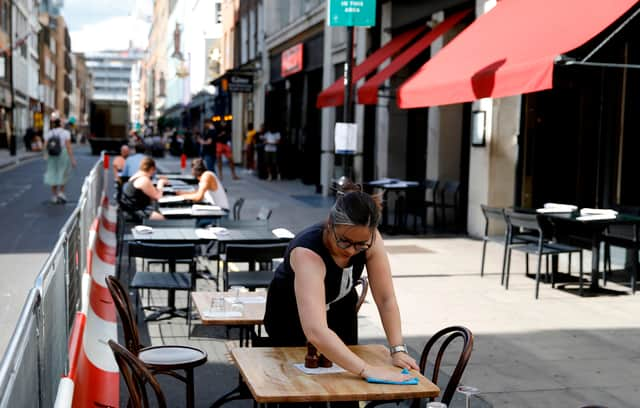National Living Wage to increase for millions: how much it will rise by and when


The National Living Wage will be increased from £8.91 an hour to £9.50 next year.
The Treasury confirmed the move for all over-23s on Monday ahead of Chancellor Rishi Sunak’s Budget this week.
How much will the increase be and when will it come into effect?
Advertisement
Hide AdAdvertisement
Hide AdThe 59p hourly boost will mean a full-time worker on the living wage will get a pay rise of more than £1,000 per year.
It will take effect from 1 April next year.
But critics questioned how much better off workers will be considering the Chancellor has already hiked National Insurance and cut Universal Credit.
Who will get an increase in pay?
The 6.6% hike is more than twice the current consumer price inflation rate of 3.1%.
While the National Minimum Wage applies to everyone of school-leaving age, the National Living Wage applies to everyone aged 23 and over.
Advertisement
Hide AdAdvertisement
Hide AdFor those aged 21 and 22, the minimum wage will rise from £8.36 an hour to £9.18, while the figure for apprentices will go from £4.30 to £4.81 per hour.
What the government said
Mr Sunak said: “This is a Government that is on the side of working people.
“This wage boost ensures we’re making work pay and keeps us on track to meet our target to end low pay by the end of this Parliament.”
Critics blast ‘underwhelming offer’
There will be questions over whether the hike is enough to support families facing a cost of living crisis.
Advertisement
Hide AdAdvertisement
Hide AdShadow chief secretary to the Treasury Bridget Phillipson said the rise was an “underwhelming offer”.
Liberal Democrat Treasury spokeswoman Christine Jardine suggested that workers will be “bitterly disappointed” when they see “almost half of any rise snatched away by the Treasury before it even reaches their bank accounts”.
Mr Sunak increased National Insurance Contributions for workers by 1.25% to help pay for the NHS and social care, while he ended the £20-a-week Universal Credit uplift.
A version of this article originally appeared on NationalWorld.com